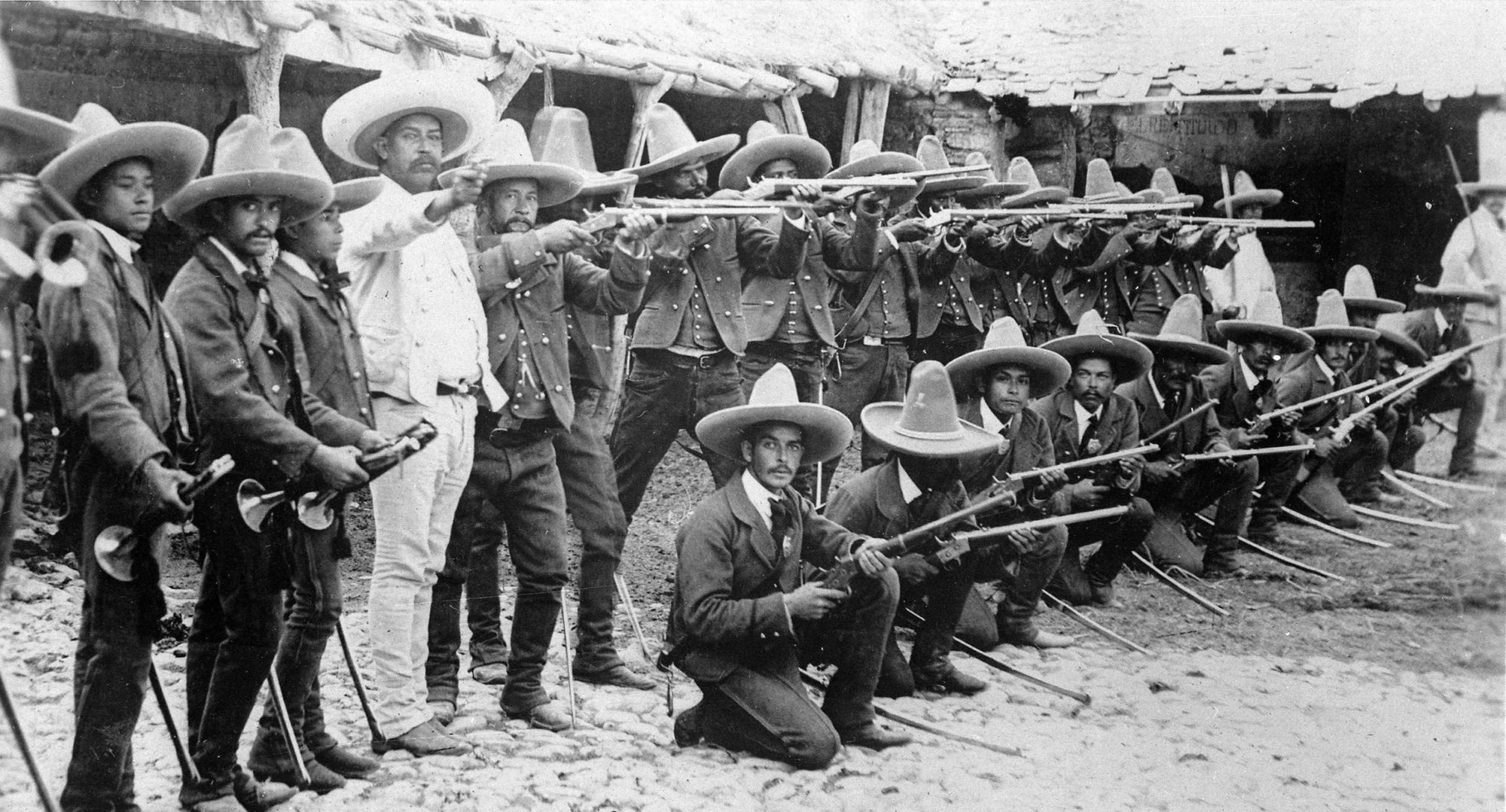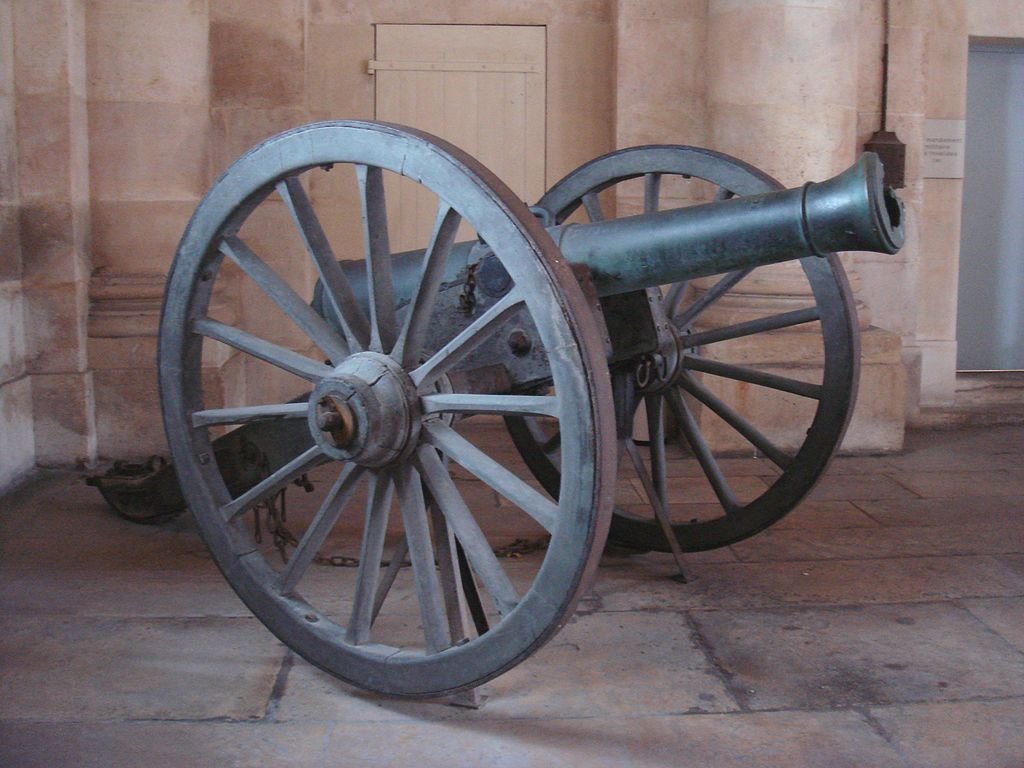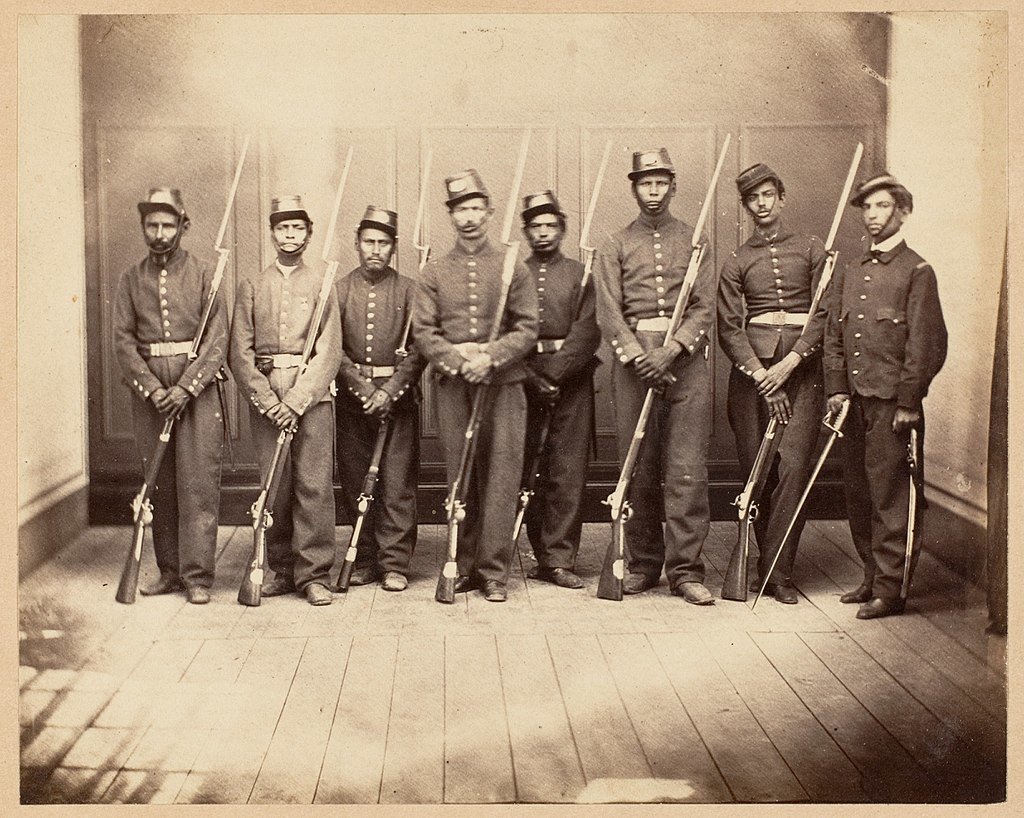
A unit of nattily uniformed Rurales armed with Remington Rolling Block carbines.
While many mistake Cinco de Mayo for Mexican Independence Day (which is September 16), the celebration is in honor of the numerically inferior Mexican troops who defeated the military might of the French during the 1862 Battle of Puebla. Outnumbered and outgunned, the inexperienced Mexican soldiers used old weapons to repel the raiding French forces despite their bold attempt to take over the country.

The French had a feared artillery field weapon called the Canon Obusier de 12 Modèle 1853. It was later used during the American Civil War, but before it graced the battlefields fought between the Confederacy and the Union, it was used during the Battle of Puebla. The smoothbore cannon was known for its versatility and ability to pack a punch into fortified defenses. The bronze barrel was loaded with shells, cannonballs, grapeshot, and improvised munitions. A crew of seven experienced French soldiers operated the cannon, and they could fire three to four shots per minute, which provided capable artillery for fire support missions. However, they had to resight the barrel after each shot because of the violent recoil impulse.
During the shelling of Fort Guadalupe, or Fuerte de Guadalupe, the fort’s stone walls suffered damage from over 150 cannon shots, but it ultimately held up. Due to its widespread use by the French, the Canon Obusier de 12 Modèle 1853 eventually garnered the nickname “Canon de l’Empereur” after Napoleon III (nephew of Napoleon Bonaparte), who led the French force against the city of Puebla.

The Mexicans, however, had the advantage of the high ground. Through sheer determination they met waves of attacks from French Zouaves — elite shock troops known for bravery in close-quarters combat — armed with only machetes and metal-tipped wooden spears.
From afar they relied on old Baker rifles first used at the turn of the 19th century by the British Army. The Mexican Army purchased a variation with a reduced .625-caliber bore that were present during the 1836 Battle of the Alamo. Some 26 years later, Baker rifles and flintlock Brown Bess muskets were the most common rifles used during the Battle of Puebla. Baker rifles had a brass trigger guard that allowed for a firm grip, which increased the accuracy of each shot. Sharpshooters used this weapon system as their primary means of defense, but it had its limitations — even for a trained marksman, it only fired one shot per minute.

Matt Fratus is a history staff writer for Coffee or Die. He prides himself on uncovering the most fascinating tales of history by sharing them through any means of engaging storytelling. He writes for his micro-blog @LateNightHistory on Instagram, where he shares the story behind the image. He is also the host of the Late Night History podcast. When not writing about history, Matt enjoys volunteering for One More Wave and rooting for Boston sports teams.
BRCC and Bad Moon Print Press team up for an exclusive, limited-edition T-shirt design!
BRCC partners with Team Room Design for an exclusive T-shirt release!
Thirty Seconds Out has partnered with BRCC for an exclusive shirt design invoking the God of Winter.
Lucas O'Hara of Grizzly Forge has teamed up with BRCC for a badass, exclusive Shirt Club T-shirt design featuring his most popular knife and tiomahawk.
Coffee or Die sits down with one of the graphic designers behind Black Rifle Coffee's signature look and vibe.
Biden will award the Medal of Honor to a Vietnam War Army helicopter pilot who risked his life to save a reconnaissance team from almost certain death.
Ever wonder how much Jack Mandaville would f*ck sh*t up if he went back in time? The American Revolution didn't even see him coming.
A nearly 200-year-old West Point time capsule that at first appeared to yield little more than dust contains hidden treasure, the US Military Academy said.












